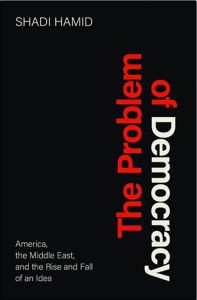Rejoignez getAbstract pour lire le résumé !

Rejoignez getAbstract pour lire le résumé !
Shadi Hamid
The Problem of Democracy
America, the Middle East, and the Rise and Fall of an Idea
Oxford UP, 2022
Aperçu
America wants democracy in the Middle East, but the region’s voters don’t want America.
Recommendation
For decades, the United States had ignored its own high-minded ideals by propping up dictators in the Middle East. With the 2010 Arab Spring, however, democracy took root in the region. Yet the results are jarring for those who hoped the Middle East would embrace US-style governance, writes professor Shadi Hamid. Islamists vaulted to power, and it became clear that the will of the people was to reject American influence. In this intriguing geopolitical study, Hamid notes that the West loves democracy in theory but not so much in practice – especially when it results in anti-American leaders.
Summary
About the Author
Shadi Hamid is a senior fellow at the Brookings Institution, a research professor of Islamic studies at Fuller Seminary and a contributing writer at The Atlantic. His first book was Temptations of Power.

















Comment on this summary